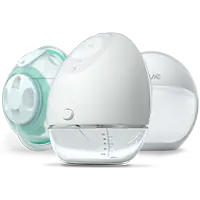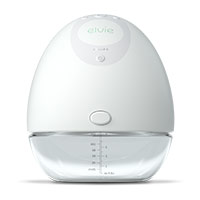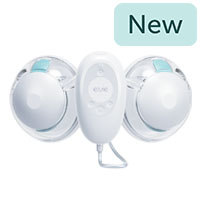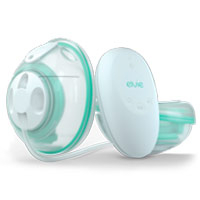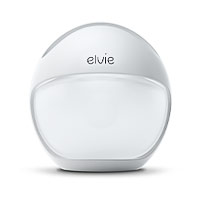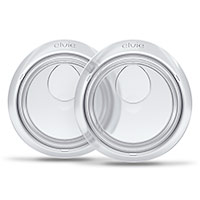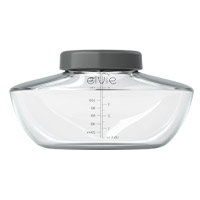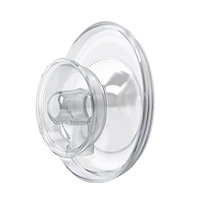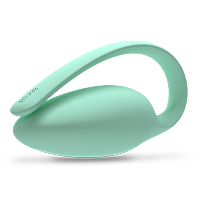Breastfeeding offers many health benefits for you and your baby. Did you know that your breastmilk knows when your baby is sick, for example? It’s pretty incredible! But what happens when you’re unwell and taking short- or long-term medication? Although most medicines are breastfeeding-friendly, you should always check with your GP or healthcare provider before taking any medication while you’re breastfeeding.
Not sure if you should be taking a specific medication while breastfeeding? Read on, as we explore some of the dos and don'ts when it comes to medication and breastfeeding.
Can I breastfeed if I take medication?
There’s no predicting when you’re going to get sick. Whether you’re suffering from a cold, an infection, or allergies, you’ll want to get your symptoms under control — and this often means taking medication. One of the biggest myths about breastfeeding is that you shouldn’t breastfeed while you’re sick, but this isn’t the case.
When you’re ill, your body will be producing antibodies which are transferred to your baby via your breast milk — which is a good thing! However, if you’re feeling under the weather and you think you might need medication to clear your symptoms, you need to check if the treatment is breastfeeding-safe first.
Long-term medication shouldn’t be stopped without seeking proper advice first. In many cases, the benefit of continuing medication for a chronic condition may outweigh any potential risks that come with taking it alongside breastfeeding.
Most short-term medications will have no impact on your ability to breastfeed your baby, and can be taken safely with no adverse side effects — though of course, side effects are always possible when you’re taking any new medication whether you’re breastfeeding or not. In any case, check with your healthcare provider to ensure it’s safe for you and your little one.
Before prescribing any medication, your doctor or health advisor should consider the following factors:
The need for the drug by the mother
How the medication may affect milk production
The amount of medication passed on through breastfeeding
Potential adverse effects on the breastfeeding infant
The age of the infant
Does medication pass through breast milk?
Very small components of what you eat and drink passes through your breast milk, and the same applies to medication and breastfeeding. Some drugs you take can be passed on to your baby as they feed, but it’s usually a tiny amount that won’t cause them any harm.
There are a few exceptions. Some drugs do have higher exposure levels and become concentrated in breast milk, making them unsafe while breastfeeding. Your doctor, lactation consultant, or pharmacist can provide more information on particular medications and in most cases, an alternative medication can be safely used instead.
Which medications can be taken while breastfeeding?
Many medications will state that they're unsuitable for breastfeeding mothers, but this is usually because breastfeeding moms are excluded from drug trials. The CDC advises: "Few medications are contraindicated while breastfeeding. Although many medications do pass into breast milk, most have no known adverse effect on milk supply or on infant well-being". That said, it is best to discuss with a doctor first. Similarly, if you’ve been on long-term medication since before you started breastfeeding, you should discuss this with your doctor or pharmacist.
Generally, the following medications are safe to be taken when breastfeeding and will cause no harm to your baby:
Most antibiotics (although you should always check with your doctor first)
Asthma inhalers
Vitamins (as long as you don’t exceed the recommended dose)
Paracetamol (check with a doctor or midwife before taking paracetamol in combination with other medicines)
If you take or are planning to take the following medications, consult your doctor or pharmacist first:
Any pain relief medication other than paracetamol, including ibuprofen
Antihistamines for allergies such as hay fever
Can I use contraception while breastfeeding?
When it comes to taking contraception while breastfeeding, the progesterone-only contraceptive pill (otherwise known as ‘the mini-pill’) is recommended, or any other methods that don’t contain oestrogen, like the IUD or the implant.
You can use non-hormonal contraception methods such as an IUD, diaphragm or cervical cap.
You cannot use the combined pill (simply referred to as ‘the pill’) until at least 3 weeks after giving birth – or longer if you have additional medical issues or are at risk of blood clots.
Can I have vaccinations while breastfeeding?
It is generally safe to have routine vaccinations while breastfeeding, including jabs for MMR, tetanus and flu, but you should always inform a healthcare professional first. You should also inform your doctor before having a coronavirus (COVID-19) vaccine.
What about other treatments?
Generally, you’re fine to have operations, local anaesthetics and dental treatments while breastfeeding, but this should of course be discussed with your healthcare provider first. It is also generally safe to breastfeed your baby after having most procedures, but again, check this with your doctor.
Speak to your doctor if you are taking or are planning to take antidepressants or herbal remedies – whether these are safe may depend on the remedy.
Which medication should be avoided while breastfeeding?
While many treatments can be taken safely while you’re breastfeeding, there are certain others that should be avoided — many of these are simply not safe to take while breastfeeding, while for others their safety cannot be guaranteed and therefore they cannot be recommended. In any instance, make sure you consult your doctor or pharmacist before you consider taking any new medication.
Common medications that you should avoid when you're breastfeeding include:
Codeine phosphate for pain relief
Aspirin for pain relief
Decongestants that come as liquids, tablets or powders
It goes without saying, but you should never take any medication that has not been prescribed by a medical professional or purchased from a licensed pharmacy. Unlicensed medication is dangerous and could cause serious harm to you and your baby.
You should never use any medication past its expiration date or take any antibiotics which have not been prescribed to you.
Can you take Ibuprofen or other painkillers while breastfeeding?
Most over-the-counter pain medications such as ibuprofen or paracetamol are safe to use while breastfeeding, but you should check with your doctor or pharmacist first. Only a very small amount will be transferred to your baby (as long as you don’t exceed the recommended dosage) and it's unlikely to cause side effects in your baby.
Can you take Nurofen while breastfeeding?
You can take Nurofen safely while breastfeeding. Most Nurofen products contain Ibuprofen, an anti-inflammatory pain reliever that is suitable for most breastfeeding mothers.
Can I take Strepsils while breastfeeding?
Strepsils are commonly taken to soothe sore throats and are usually safe to use while breastfeeding.
Can you take antibiotics while breastfeeding?
Almost all antibiotics are safe to be taken by breastfeeding mothers, including penicillins, aminopenicillins, clavulanic acid, cephalosporins, macrolides, and metronidazole, but your doctor may prescribe you a low dosage. Each antimicrobial medication is different, so you should always consult your doctor before starting a course of antibiotics.
Is antihistamine safe for breastfeeding?
Antihistamines are medicines used to relieve symptoms of allergies, such as hay fever, hives, or reactions to insect bites or stings. Most antihistamine medications, such as Loratadine, are safe for breastfeeding parents; however, you may be recommended a nasal spray rather than tablets. Check with your doctor or pharmacist first.
Can I take Lemsip when breastfeeding?
In cold and flu season, decongestant treatments such as Lemsip — which can be taken as a liquid, tablets, or mixed into a hot drink — can ease symptoms such as a chesty cough, fever, and headache. Lemsip products contain pseudoephedrine and and are not compatible with breastfeeding as they can decrease breast milk supply.
Can I take Codeine while breastfeeding?
Unlike over-the-counter painkillers such as paracetamol, codeine is a much stronger treatment used to relieve mild to moderate pain. It is not recommended to breastfeeding mothers, as it may cause infant drowsiness, breathing difficulties, and other serious side effects.
The last thing you want while breastfeeding your little one is to feel under the weather. You shouldn’t hesitate to seek treatment if you fall ill — your health is just as important as your baby’s, after all — but you should always inform a healthcare professional that you are breastfeeding, so you can be given the safest and most effective drug available. Please do remember that most medications won’t cause any harm to you or your baby, but not all medications are safe to take while nursing. Still unsure? If you've got any doubts, check first!
The information above was supervised by Stacey Zimmels on 31/03/2023. Stacey is a feeding and swallowing specialist speech therapist (SLT) and International Board-Certified Lactation Consultant (IBCLC).

